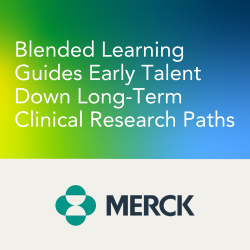Recognizing that successfully onboarding entrants into clinical research programs is only the beginning of the battle necessary for building a durable and engaged workforce, Merck and the Association of Clinical Research Professionals (ACRP) have collaborated on a bold approach to training and keeping some of the company’s newest and most promising talent on the path to long-term careers in clinical trials.
Alzheimer’s clinical development has moved from decades of disappointment toward cautious optimism. For nearly 20 years, most Phase III programs targeting amyloid ended in futility, leaving clinicians and caregivers disheartened.
Because nothing stands still for very long in the clinical research enterprise and time is a precious commodity, rather than coming in the form of full-fledged, long-term programs focused on their needs, ongoing education for principal investigators (PIs) tasked with leading clinical trial teams often comes in other guises. These may include learning in an on-the-job manner, through structured (though perhaps scattered) courses, by attending sponsor/contract research organization–conducted trainings, or by completing online modules on specialized topics.
Those in clinical research who most strongly believe the old saying about how “the best offense is a good defense” may often be the same people who have good reason to understand that a regulatory inspection, sponsor audit, or period of institutional review board (IRB) scrutiny could descend upon their study site at any time, announced or unannounced, so the best tactic is ongoing vigilance.
As digital health technologies and the biomarkers they track become increasingly valuable tools for providing insights into patients' health in real-world settings, the authors of a forthcoming special feature for ACRP's Clinical Researcher journal say we are witnessing a reshaping of how evidence is generated in clinical research across multiple dimensions.




